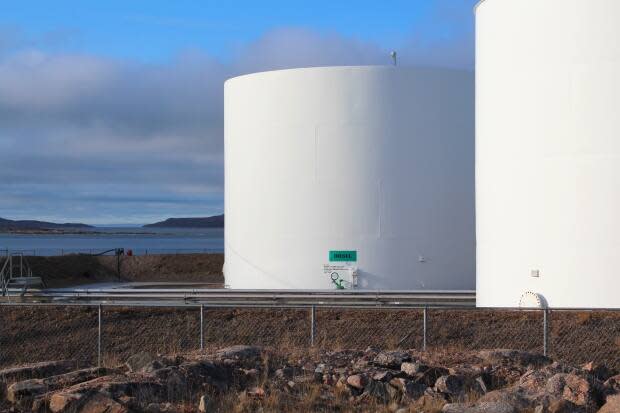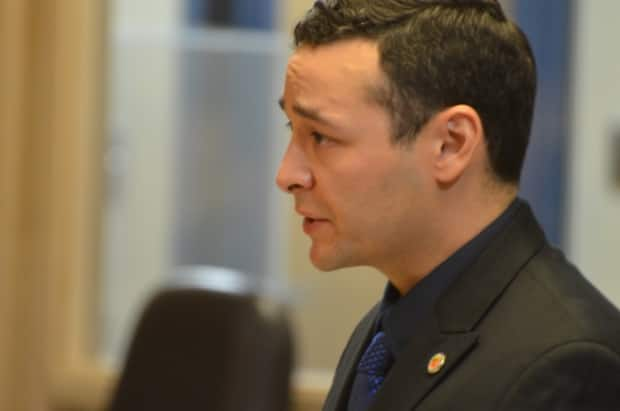MLAs delay increase to Nunavut's fuel spending, calling estimates 'accounting wizardry'

Nunavut MLAs say there is a lack of transparency about how petroleum products are purchased for the territory.
MLAs have delayed two bills related to fuel supply and fuel purchasing to be reviewed in the spring sitting in June.
MLA for Iqaluit-Manirajak, Adam Arreak Lightstone, called the bills "very complex" and "significant," which is why they need more time to go over the legislation.
"Petroleum products and the way that it has been managed in the territory for the last 20 years is somewhat of a mystery," said Arreak Lightstone in the legislature last Thursday.
Nunavut buys fuel in bulk and the price they pay for it determines how much the government needs to sell it for.
The money used to buy fuel comes from an account called the revolving fund. Bill 54, the Act to Amend the Revolving Funds Act, would give the government's petroleum products division an extra $100 million to buy fuel.
Currently, the petroleum products division has $250 million to buy fuel.

The government says this legislation would have allowed the government to buy more fuel while prices are low, saving residents money.
Finance Minister George Hickes said the increase in the fund would have saved $32 million on fuel purchases.
Hickes tabled the legislation in the October sitting and the bill has been delayed since then. Hickes said that has cost the government an additional $15 million in lost savings.
But MLA for Arviat North-Whale Cove, John Main, says he doesn't understand how the government arrived at its estimate of $32 million in savings.
"We have tried to conduct more research into this amount by asking our own government, what kind of accounting wizardry was done to come up with this phantom $32 million fund, and where is this stemming from?" said Main.
Finance Minister says the bill is simple
The revolving fund works on a break-even basis, meaning this money is paid back when fuel is purchased.
But because market fuel prices don't stay the same all year, a different pocket of money, called the stabilization fund, is used to subsidize higher fuel prices so residents aren't charged more.
But this fund is in a $18-million deficit, more than the allowed $10 million in borrowing for the fund.
Hickes said, because of COVID-19, fewer people bought fuel, so the fund wasn't filled back up.

"In light of the hardships Nunavummiut were facing due to COVID[-19], it just wasn't appropriate or the right time to impose a fuel price hike just before Christmas and going into our coldest months," said Hickes in the legislature last week.
Arreak Lightstone said the deficit was caused by the pandemic and should be supplemented through COVID-19 funding.
But Hickes said the government doesn't feel that diverting money from the health and safety of Nunavut residents is an appropriate option.
Bill 54 would allow a $20-million deficit in the stabilization fund to recover fuel costs over a longer period of time.
"It seems to be over-analyzed," Hickes told CBC. "I think this is a very basic piece of legislation."
The minister of community and government services, Jeannie Ehaloak, said if the bill was passed this sitting, fuel prices would drop in April.
CBC asked the department about expected fuel costs for April because of the delay of Bill 54, but it responded that they can't determine retail prices of fuel until they finish purchasing products for 2021.

